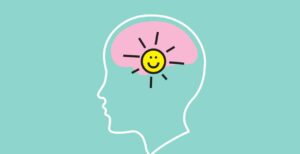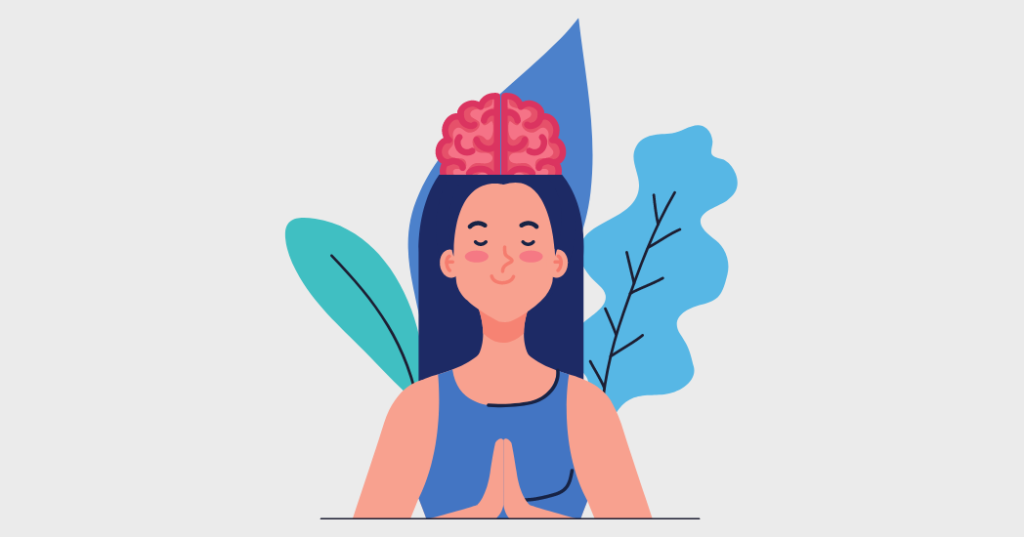Depression is one of the most common mental health disorders in the world. It can affect anyone, regardless of age, race, or gender. Depression can make everyday activities feel impossible, and can often lead to thoughts of suicide or self-harm. If you are struggling with depression, know that you are not alone. There is help available! In this blog post, we will discuss 18 self-help tips for depression that can help you overcome your mental illness and start feeling like yourself again.
Contents
- 1 Defining Depression
- 2 Top 18 Self-Help Tips For Depression
- 2.1 Accept yourself
- 2.2 Utilize social support
- 2.3 Indulge in hobbies
- 2.4 Spend time in nature
- 2.5 Vent it out
- 2.6 Maintain sleep hygiene
- 2.7 Incorporate physical exercise
- 2.8 Monitor your diet
- 2.9 Adapt to a schedule
- 2.10 Abstain from harmful substances
- 2.11 Reorganize your space
- 2.12 Practice self-love
- 2.13 Be around animals
- 2.14 Boost happy hormones
- 2.15 Find ways to give back to others
- 2.16 Set realistic goals
- 2.17 Have gratitude
- 2.18 Keep track of your symptoms
- 3 Conclusion
Defining Depression
 Depression is a mental health disorder that is characterized by persistent feelings of sadness, hopelessness, and worthlessness. Depression can make it difficult to enjoy activities that were once enjoyable and can lead to social isolation. It is more than just feeling “down” or “sad” for a few days. Depression is a serious medical condition that requires treatment.
Depression is a mental health disorder that is characterized by persistent feelings of sadness, hopelessness, and worthlessness. Depression can make it difficult to enjoy activities that were once enjoyable and can lead to social isolation. It is more than just feeling “down” or “sad” for a few days. Depression is a serious medical condition that requires treatment.
The signs and symptoms of this condition can vary from person to person. Some people may experience all of the symptoms, while others may only experience a few. The most common symptoms include:
- Persistent feelings of sadness or emptiness
- Hopelessness
- Anxiety or worry
- Angry outbursts
- Loss of interest in activities that were once enjoyed
- Fatigue or decreased energy
- Changes in appetite or weight
- Sleep problems
- Difficulty concentrating
- Thoughts of death or suicide
The effects of these symptoms can influence a large part of a person’s life. Depression can make it difficult to go to work or school, take care of personal hygiene, and interact with friends and family. It is important to seek help if you are struggling with any of these symptoms.
Top 18 Self-Help Tips For Depression
Thankfully, there are a number of ways that you can help yourself if you are struggling with depression. These self-help tips for depression can supplement professional treatment and may help you start to feel better.
Accept yourself
The very first step is to recognize and acknowledge that you have depression. It is important to understand that this is not your fault and that you are not alone. Depression is a real medical condition that can be treated. Most of the time, people tend to ignore, downplay, or deny their depression. You may often hear things such as “just snap out of it” or “look on the bright side”.
This only makes the problem worse. The sooner you accept that you have depression, the sooner you can start working on getting better. This also helps to get rid of any feelings of shame or guilt that may be associated with the condition.

It is no secret that human beings are social animals. It is one of our basic needs. When we are feeling down, it is often helpful to talk to someone who will understand and offer support. This could be a friend, family member, therapist, or anyone else who can offer a listening ear.
If you do not have anyone in your life that you feel comfortable talking to about your depression, there are other options. There are many online support groups available that can connect you with others who are going through similar experiences. These groups can provide a great source of support and advice. There are also several resources such as apps, podcasts or hotlines that can offer support and resources.
Indulge in hobbies
When one is in depression, it can be difficult to find things that bring joy. However, it is important to try and engage in activities that make you happy. This could be anything from listening to music, painting, hiking, biking, playing sports, or anything else that you enjoy.
Hobbies can help take your mind off of negative thoughts and can be a great way to cope with depression. If you are having a hard time finding activities that you enjoy, it may be helpful to try something new. It is important to find an activity that suits your interests and personality.
Moreover, hobbies also provide an outlet for people to find their identity and build self-confidence. It can be easy to lose yourself when you are depressed. However, hobbies can help you remember who you are and what brings you joy.
Spend time in nature
It is a well-known fact that spending time in nature can help improve your mood. There is something about being in the outdoors that just makes people feel better. Studies have shown that spending time in nature can help reduce stress, anxiety, and depression.
There are a number of ways to get involved with nature. You can go for a walk in the park, take a hike in the woods, or even just sit outside for a while. It is important to find an activity that you enjoy and that suits your needs.
Vent it out

Most of the time, people with depression often bottle up their emotions. They may feel like they are a burden to others or that no one will understand. However, it is important to express how you are feeling. There are a number of ways to do this. You can write in a journal, talk to a friend or therapist, or even just scream into a pillow. Indulging in expressive arts and crafts can also be helpful. It is beneficial to find an outlet that works for you and that makes you feel comfortable.
It is important to find an outlet that works for you and that you feel comfortable with. If you are feeling hesitant, it may be helpful to start with something small.
Depression can also cause people to feel like they are trapped in their own heads. This can be an extremely isolating feeling. To fight this feeling, it is essential to reach out to others. Whether this is through social media, support groups, or talking to a friend, it is important to connect with others. Moreover, it is also important to be mindful of how you express your emotions. It is important to be respectful and considerate of others when venting.
Maintain sleep hygiene
Sleep is one of the most important things for our mental and physical health. Unfortunately, depression can make it difficult to get a good night’s sleep. This can create a vicious cycle, as lack of sleep can worsen depression.
There are a number of things that you can do to improve your sleep hygiene. This includes maintaining a regular sleep schedule, avoiding caffeine before bed, and disconnecting from electronics at least an hour before bed. It is also important to create a comfortable and relaxing environment for yourself. This could include investing in some cozy pajamas or using a noise machine to help you fall asleep. You may also use relaxation techniques such as yoga or meditation to help you sleep. The ideal time one should aim to sleep is eight hours per night.
Incorporate physical exercise
 This one may seem like a no-brainer, but physical exercise is often overlooked when it comes to mental health. There is a lot of research that supports the benefits of exercise for mental health. Exercise has been shown to be an effective treatment for depression. Exercise is a great way to boost your mood and alleviate symptoms of depression. It releases endorphins, which have mood-boosting effects. Exercise can also help to improve sleep, increase energy levels, and reduce stress. Even a small amount of exercise can make a big difference. A simple walk
This one may seem like a no-brainer, but physical exercise is often overlooked when it comes to mental health. There is a lot of research that supports the benefits of exercise for mental health. Exercise has been shown to be an effective treatment for depression. Exercise is a great way to boost your mood and alleviate symptoms of depression. It releases endorphins, which have mood-boosting effects. Exercise can also help to improve sleep, increase energy levels, and reduce stress. Even a small amount of exercise can make a big difference. A simple walk
Monitor your diet
What we eat has a large impact on our mental health. Eating a healthy diet can help to improve mood and reduce symptoms of depression. There are a few things to keep in mind when it comes to diet and depression. First, eating a balanced diet is important. This means including plenty of fruits, vegetables, whole grains, and lean protein in your diet. Secondly, avoiding processed and sugary foods is important. These types of foods can lead to a crash in blood sugar levels, which can worsen symptoms of depression. Lastly, it is important to get enough omega-three fatty acids. These are found in oily fish, such as salmon, and in flaxseed oil. Omega-three fatty acids have been shown to be effective in treating depression. There are a number of other supplements such as vitamin D and B-complex vitamins that can also be effective in treating depression.
Moreover, ensuring sufficient hydration is essential. Depression can cause dehydration, which can worsen symptoms. It is important to drink plenty of water and other fluids throughout the day.
Adapt to a schedule
It is a common observation that depression makes one lose track of time. This can make it difficult to stick to a schedule. However, having a set routine can be very helpful in managing depression. Having a set schedule can help to structure your day and give you a sense of purpose. It can also help to reduce stress and anxiety. A good way to start is by making a list of things that you need to do each day. Then, try to stick to that schedule as best as you can. It is okay if you are not always able to stick to it perfectly. Just try your best and be patient with yourself.
Abstain from harmful substances
 Substances such as alcohol, nicotine, and drugs can worsen symptoms of depression. They can also lead to addiction and other health problems. If you are struggling with depression, it is important to abstain from these substances.
Substances such as alcohol, nicotine, and drugs can worsen symptoms of depression. They can also lead to addiction and other health problems. If you are struggling with depression, it is important to abstain from these substances.
Because these substances contain harmful chemicals such as nicotine and alcohol, they can cause a number of problems. They can worsen symptoms of depression, such as anxiety and irritability. They can also lead to addiction and other health problems. If you are struggling with depression, it is important to abstain from these substances. This is also important as they can interfere with other treatments, such as medication.
Reorganize your space
It is a common symptom of depression to feel like your life is a mess. This can often lead to physical clutter in your space. If your space is cluttered, it can be difficult to find things and make decisions. It can also be overwhelming and cause anxiety. A cluttered space can also be a reminder of all the things you have to do. This can be very overwhelming and cause anxiety. If your space is cluttered, it is important to take some time to reorganize it. This can help to reduce stress and anxiety and make it easier to find things. It can also contribute to making you feel more in control and evoke a sense of purpose.
Practice self-love
People with depression face a lot of negative self-talk. This can be very harmful and make symptoms worse. It is important to practice self-love and acceptance. This means accepting yourself for who you are, even if you have depression. It also means being kind to yourself and treating yourself with compassion. One way to do this is by speaking kindly to yourself. Another way is to engage in activities that make you happy. This could be anything from reading a book to taking a hot bath. You can also invest in yourself by taking up a new hobby or learning a new skill. Some other ways of practicing self-love also include: taking care of yourself, setting boundaries, and using positive affirmations.
Be around animals
Animals have a number of benefits. They can provide companionship, love, and support. They can also help to reduce stress and anxiety. Studies have shown that spending time with animals can be beneficial for people with depression.
This is because animals can provide companionship and unconditional love. They can also help to reduce stress and anxiety. Studies have shown that spending time with animals can be beneficial for people with depression. If you do not have a pet, you can still reap the benefits by spending time around animals. This could be anything from going for a walk in the park to volunteering at a local animal shelter.
Boost happy hormones
 Since depression is a mental illness, it is important to focus on the mind-body connection. This means taking care of both your physical and mental health. One way to do this is by boosting happy hormones.
Since depression is a mental illness, it is important to focus on the mind-body connection. This means taking care of both your physical and mental health. One way to do this is by boosting happy hormones.
Happy hormones are of course, hormones that make you feel happy. These include serotonin, dopamine, and oxytocin. One way to boost these hormones is by exercising. Exercise releases endorphins, which are known as the “feel-good” hormone. It also helps to improve sleep, which can be very beneficial for people with depression. Another way to boost happy hormones is by spending time in nature. Research has shown that spending time in nature can increase levels of serotonin. It can also help to reduce stress and anxiety. The list of activities for this is endless. It is important to find what works for you and stick with it.
Find ways to give back to others
It is often said that the best way to help yourself is to help others. This could not be more true when it comes to depression. When you are feeling low, it can be hard to focus on anything else. However, by helping others, you can take the focus off of your own problems. This can help to reduce stress and anxiety. It can also make you feel good about yourself. There are many ways to give back to others. You could volunteer your time at a local charity or non-profit organization. You could also donate money or items to a local food bank or homeless shelter. Another way to give back is by simply being there for someone who needs you. This could be a friend, family member, or even a stranger. Sometimes, all it takes is a kind word or gesture to brighten someone’s day.
Set realistic goals

When you are feeling depressed, it can be difficult to Motivate yourself to do anything. This is why it is important to set small, realistic goals. These goals should be something that you can actually achieve and should not require a lot of effort. It is also important to remember that it is okay to start small. The most important thing is to get started. Some examples of small, realistic goals include: taking a shower, getting dressed, eating breakfast, and going for a walk. Once you have accomplished these goals, you can then move on to bigger ones. Another way to set realistic goals is by breaking them down into smaller, more manageable steps. For instance, if your goal is to exercise for 30 minutes a day, you can break it down into two 15-minute sessions. This will make it seem less daunting and more achievable.
Have gratitude
Gratitude is an important part of overcoming depression. This is because it helps to shift your focus from the negative to the positive. When you are feeling down, it can be hard to see anything good in your life. However, by practicing gratitude, you can start to see the positives. This can help to improve your mood and outlook on life. There are many ways to practice gratitude. You could start a gratitude journal, in which you write down things that you are thankful for each day. You could also make it a point to express your gratitude to others. This could be anything from saying “thank you” more often to writing a thank-you note.
Keep track of your symptoms
 Lastly, as a way to help you overcome depression, it is important to keep track of your symptoms. This will help you to see how well you are doing and whether or not your treatment plan is working. It can also be helpful to share this information with your doctor or therapist. They can then make any necessary changes to your plan. There are many ways to keep track of your symptoms. You could keep a journal, in which you write down how you are feeling each day. You could also use a rating scale, such as the Depression Self-Rating Scale, to track your symptoms.
Lastly, as a way to help you overcome depression, it is important to keep track of your symptoms. This will help you to see how well you are doing and whether or not your treatment plan is working. It can also be helpful to share this information with your doctor or therapist. They can then make any necessary changes to your plan. There are many ways to keep track of your symptoms. You could keep a journal, in which you write down how you are feeling each day. You could also use a rating scale, such as the Depression Self-Rating Scale, to track your symptoms.
All of these self-help tips for depression can be very beneficial in helping you to manage your emotions. However, it is important to remember that it is a process. There will be good days and bad days. The most important thing is to keep moving forward. Depression can be a very difficult and challenging condition to live with. It is important to be patient with yourself as you recover. The journey to recovery can be long and difficult, but it is important to remember that you are not alone.
Conclusion
In conclusion of the above, it is important to get help when you are feeling depressed. These self-help tips for depression are just a blueprint for what you can do to help yourself. If you find that your symptoms are getting worse, or if you are having suicidal thoughts, it is important to seek professional help. There are many resources available to those who are struggling with depression. You are not alone in this battle.
If you or someone you know is struggling with depression, Therapy Mantra is here for you. We are the leading providers for online therapy and counseling. Our team of highly trained and experienced therapists can help you work through your depression. Contact us today to learn more about our services. You may also visit our website to book an online therapy session or download our free Android or iOS app for more information.


